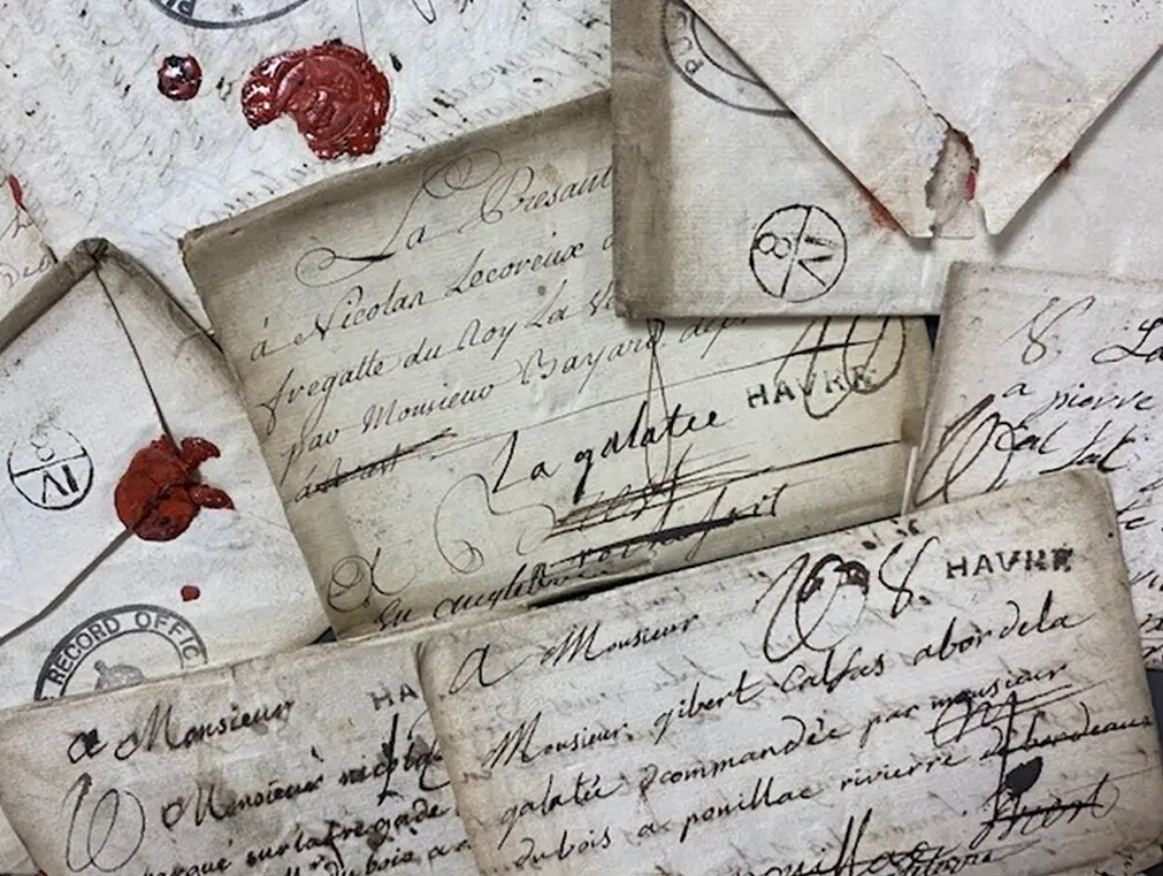A Bundle of 18th-Century Love Letters Is Unsealed at Last
More than 100 letters, addressed to French sailors, were never delivered. They remained unopened for nearly 250 years until a historian found them in Britain’s archives.
The ink has barely faded, and the paper has only slightly yellowed. For nearly 250 years, the letters, more than 100 of them, sat sealed in Britain’s National Archives, unopened and unexamined until a history professor stumbled upon them. He found, to his delight, a treasure trove bearing intimate details about romance and daily life in mid-18th-century France.
Unlike many other written documents from that era, most of the letters were written by women — the mothers, fiancées and sisters of French sailors whose warship, the Galatée, was captured by the British Navy on April 8, 1758. Some letters contained accounts of wives pining for their husbands away at war, while others included discussions of household finances, the birth of a child or expressions of resentment toward sailors who had been out of touch.
Renaud Morieux, a European history professor at the University of Cambridge who discovered the collection of letters in 2004, said he asked an archivist if he could examine the contents of a box only out of curiosity while conducting research at the National Archives in southwest London.
Inside the box, Dr. Morieux found three bundles of letters. Only three of the letters had been opened, most likely by a low-level clerk shortly after the British Navy had received them from France. The clerk may have deemed them not worthy of further inspection and put them into storage, where they were forgotten about.
Dr. Morieux spent five months poring over the letters, which had been folded into envelopes and sealed with red wax stamps. The writing was scribbled onto high-quality paper and was often littered with spelling errors. Busy with writing a book and with other research projects, Dr. Morieux published his findings this week, nearly 20 years after discovering the letters, in the French academic journal Annales. Histoire, Sciences Sociales.
Dr. Morieux said he found it emotional to be the first person to read such messages, filled with sadness and intimacy, that went undelivered to their intended recipients.
Writes The New York Times





